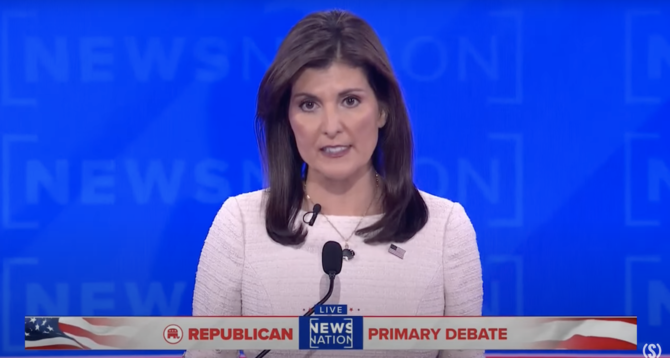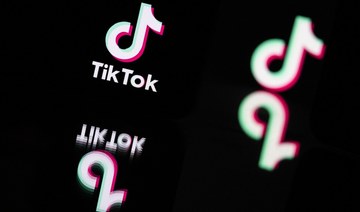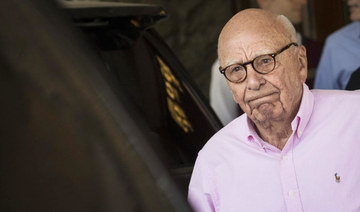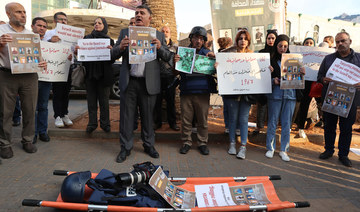In letters signed by the Committee to Protect Journalists and seven other human rights and press freedom organizations, President Joe Biden is being urged to press Israeli Prime Minister Benjamin Netanyahu on the rising number of journalists killed in the Gaza Strip and the near total ban on international media entering the enclave.
The letters call on Washington to “ensure that Israel ceases the killing of journalists, allows immediate and independent media access to the occupied Gaza Strip, and takes urgent steps to enable the press to report freely throughout Israel and the Occupied Territories,” while also detailing the number of grave press freedom violations and the response of total impunity.
The letters were signed by Amnesty International USA, Freedom of the Press Foundation, Knight First Amendment Institute, the National Press Club, PEN America, Reporters Without Borders, and the Tahrir Institute for Middle East Policy.
The Israeli PM is expected to meet with Biden on Tuesday and is scheduled to attend a joint session of Congress on Wednesday.
Since the beginning of the Israel-Hamas war last October, the Israeli government’s actions have created what the letter describes as a “censorship regime.”
In a video message to Netanyahu last week, CPJ CEO Jodie Ginsberg said: “Nine months into the war in Gaza, journalists … continue to pay an astonishing toll.
“More than 100 journalists have been killed. An unprecedented number of journalists and media workers have been arrested, often without charge. They have been mistreated and tortured.”
Israel’s persistent impunity in attacks on journalists has also affected the rights and safety of two American journalists: Shireen Abu Akleh, who was murdered in 2022, and Dylan Collins, who was injured in an Oct. 13 strike by Israel on journalists covering the conflict in south Lebanon. The strike killed Reuters photographer Issam Abdullah and wounded others who were visibly wearing press insignia.
Investigations conducted by Amnesty, Human Rights Watch, AFP and Reuters found the attack was more than likely targeted.
On Sunday in Vincennes, France, Collins joined his AFP colleague Christina Assi who lost her right leg in the same attack as she carried the Olympic flame in honor of journalists killed.
CPJ, which continues to urge decisive action by the US government on journalist safety and media access to Gaza, called on Biden to guarantee in his meeting with Netanyahu that the Israeli government take the following steps:
— Lift its blockade on international, Israeli, and Palestinian journalists from independently accessing Gaza.
— Revoke legislation permitting the government to shut down foreign outlets and refrain from any further legal or regulatory curtailment of media operations.
— Release all Palestinian journalists from administrative detention or who are otherwise held without charge, including those forcibly disappeared.
— Abjure the indiscriminate and deliberate killing of journalists.
— Guarantee the safety of all journalists and allow the delivery of
newsgathering and safety equipment to reporters in Gaza and the West Bank.
— Allow all journalists seeking to evacuate from Gaza to do so.
— Transparently reform its procedures to ensure that all investigations into alleged war crimes, criminal conduct, or violations of human rights are swift, thorough, effective, transparent, independent, and in line with internationally accepted practices, such as the Minnesota Protocol. Investigations into abuses against journalists must then be promptly conducted in accordance with these procedures.
— Allow international investigators and human rights organizations, including UN special rapporteurs and the UN Independent International Commission of Inquiry on the Occupied Palestinian Territory and Israel, unrestricted access to Israel and the Occupied Territories to investigate suspected violations of international law by all parties.
The letter was also sent to Senate Majority Leader Chuck Schumer, House Minority Leader Hakeem Jeffries, Senate Minority Leader Mitch McConnell and House Speaker Mike Johnson.





























